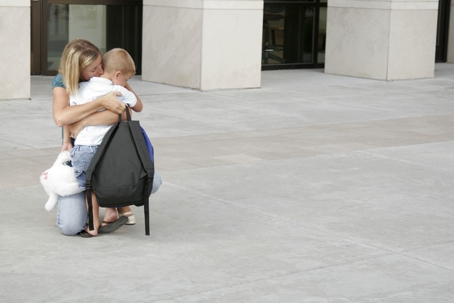Often, questions regarding a parent’s use of alcohol or other substances comes up in family law proceedings. Pursuant to Florida Statue 61.13, the ability of a parent to keep their home free from substance abuse may be considered as part of the Courts determination in establishing or modifying a parenting plan or child custody order. Fla. Stat. 61.13 (3)(q). However, in a highly contested child custody matter, it is not unusual to see a parent claiming the other is unfit due to their occasional happy hour with friends, or their regular consumption of “a couple beers” after returning from work.
Further complicating things is the recent trend of decriminalization of marijuana in many states. While recreational use of marijuana is still illegal in Florida, some cities have passed ordinances that provide lesser penalties for possession of the drug in smaller quantities. Florida has also legalized medical marijuana usage for those that suffer from various terminal illnesses and or those that include chronic, malignant pain.
In light of the above, what is it that Courts will or will not consider when it comes to the issue of substance abuse? Consistent with Florida’s “best interest of the child” standard, Courts are often going to look to how a parent’s consumption of alcohol and or use of other substances has affected the child, or if their behavior could be harmful to the child. Also, some substances inherently may be more of a threat to a child. Generally speaking, a parent that has a couple drinks after work is often going to be seen as not much of a threat of harm to a child without more details of past harm, while a parent that has pending violent offenses due to methamphetamine use is more likely to be considered dangerous to a child.
The above is still somewhat difficult to understand and reconcile and a judge has a wide breadth of discretion in family law cases. However, in looking to substance abuse concerns, I would often ask these questions:
- Does the other parent that regularly consumes alcohol or other substances do so around the child?
- Does the parent that is using controlled substances/marijuana have a valid prescription or license for medical purposes?
- Has there ever been an incident around the child while the parent was under the influence.
- Has law enforcement or Department of Children and Families been involved?
- What steps did law enforcement or DCF take in order to protect the child(ren)?
- Does the parent provide alcohol or other substances to the minor child?
Often making things difficult is that fact that law enforcement and Department of Children and Families may have investigated similar claims and found no findings of abuse, neglect or abandonment on behalf of a parent with an apparent substance abuse issue. Courts can also order a party take a drug test; however, a party requesting such a test may have to show good cause as to why the offending person should take such a test, and a Court must also consider that parent’s right to privacy. For the parent that does not drink or smoke, instances like the above may make little sense.
Some Courts have even allowed sets of alcoholic parents to continue to have significant timesharing with their children, so long as the party is not showing any kind of detriment to the child in question. See Birtwistle v. Birtwistle, 377 So.2d 54 (1979) (rejecting Husband’s claim that mother was unfit when both parties were admittedly alcoholics, but no detriment could be shown to the minor children).
Unfortunately, the answer is often one of a “case by case” basis and the Court will look to all of the circumstances and factors that the Court must review in making a timesharing / custody evaluation. However, our Florida attorneys are happy to discuss with you your particular case and any applicable substance abuse issues and advise you on your rights and obligations at a time that is convenient for you. Please feel free to contact our office for a free 30 minute consultation on substance abuse and child custody. We have offices located in Panama City, Orlando, Florida, Fort Walton, and Pensacola. We are here to help you if you are facing a child custody issue.

